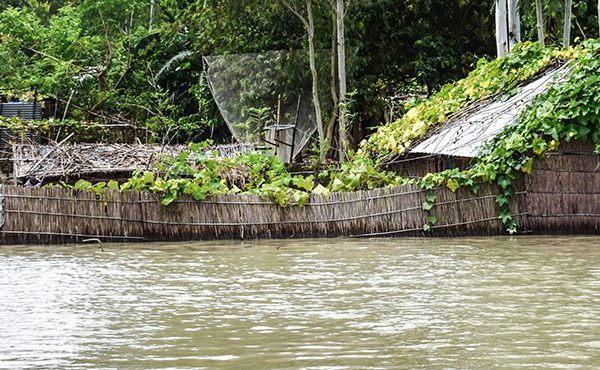Reading Time: 2 minutes
$1.8 trillion in climate investment by 2030 can generate $7.1 trillion globally, but investment in climate is still falling woefully short, year after year. Policymakers from all over the world gathered to negotiate a new deal for climate finance at the The Summit for a New Global Financial Pact in Paris this week, and there’s hope that change is ahead. Climate experts from Bangladesh, one of the most climate-impacted nations in the world, share five recommendations they took to Paris:
When it comes to climate financing models, what do you think needs to be done to support people living on the frontlines of the climate crisis, the majority of whom are living in the global south?
Here are the five recommendations for a new climate finance pact that works for the people who need it the most:
- Rebuild trust. The world is tired of empty promises – actions must now match words. Paris has held important symbolism for the potential of multilateral cooperation since the success of the Paris Agreement in 2015, yet promises from global leaders continue to fall short. This summit risks losing its currency and further degrading trust unless we see swift action in line with declared commitments.
- National leaders must prioritise the long-term interests of their countries rather than short-term election cycles. The mark of real leadership is taking tough decisions that are in the long-term interest of the country and the planet, rather than narrow, short-term interests. ‘Short-termism’ is hindering the meaningful system reforms necessary for the future of humankind.
- Apply a ‘whole of society approach’. National budgets must reflect that the crises of today and tomorrow are no longer siloed within any one ministry, sector or industry. Bangladesh, for example, has become a fertile ground for climate action as a result of an environment that includes political ownership, enabling policies, committed academia, vibrant civil society, innovative industry and a dynamic youth movement. Key to this is leaders who incentivise and create space for strategic alliances and coordinated action.
- Look to lower-income countries for approaches that already work to get resources to people whose lives are being impacted the most by the climate crisis. We do not need to reinvent the wheel. For countries like Bangladesh, climate change is an old problem with established solutions. Look at the Climate Bridge Fund in Bangladesh as an example, where funding from a group of partners is channelled to smaller organisations. The fund is self-sustaining – it generates revenue by investing in government treasury bonds. It disburses money to people working directly on the frontlines of climate adaptation and loss and damage, enabling locally led adaptation at scale.

A woman walks home after collecting water for drinking and domestic use in southwestern Bangladesh. The area has been facing a severe crisis of saline water intrusion contaminating both groundwater and surface water sources. Photo credit: Sumon Yusuf © BRAC, 2011.
- Put women and youth in the driving seat. Just as women have been the managers of scarcity, bearing the disproportionate burden of poverty and crises across the world, so too are they the ministers of energy, resourcefulness and resilience in every household. In addition, no one sees what is at stake more clearly than the youth of today, who have the most at stake. A new global financing pact must unlock the dynamism and potential of women and youth everywhere.
Most leaders now acknowledge the urgency of climate action, but calculations don’t often consider the cost of inaction – the opportunity cost of doing nothing or too little.
In negotiating a new climate financing pact we need a realisation of the existential threat we are facing and how much it will cost to tackle that, as well as an understanding of what is already working and needs to be invested in on the frontlines of the climate crisis.
Saber Hossain Chowdhury is a MP and Special Envoy to the Prime Minister for Climate Change of Bangladesh.
Professor Saleemul Huq is the Director of International Centre for Climate Change.
Dr Golam Rabbani is the Head of Secretariat of the Climate Bridge Fund in Bangladesh.





